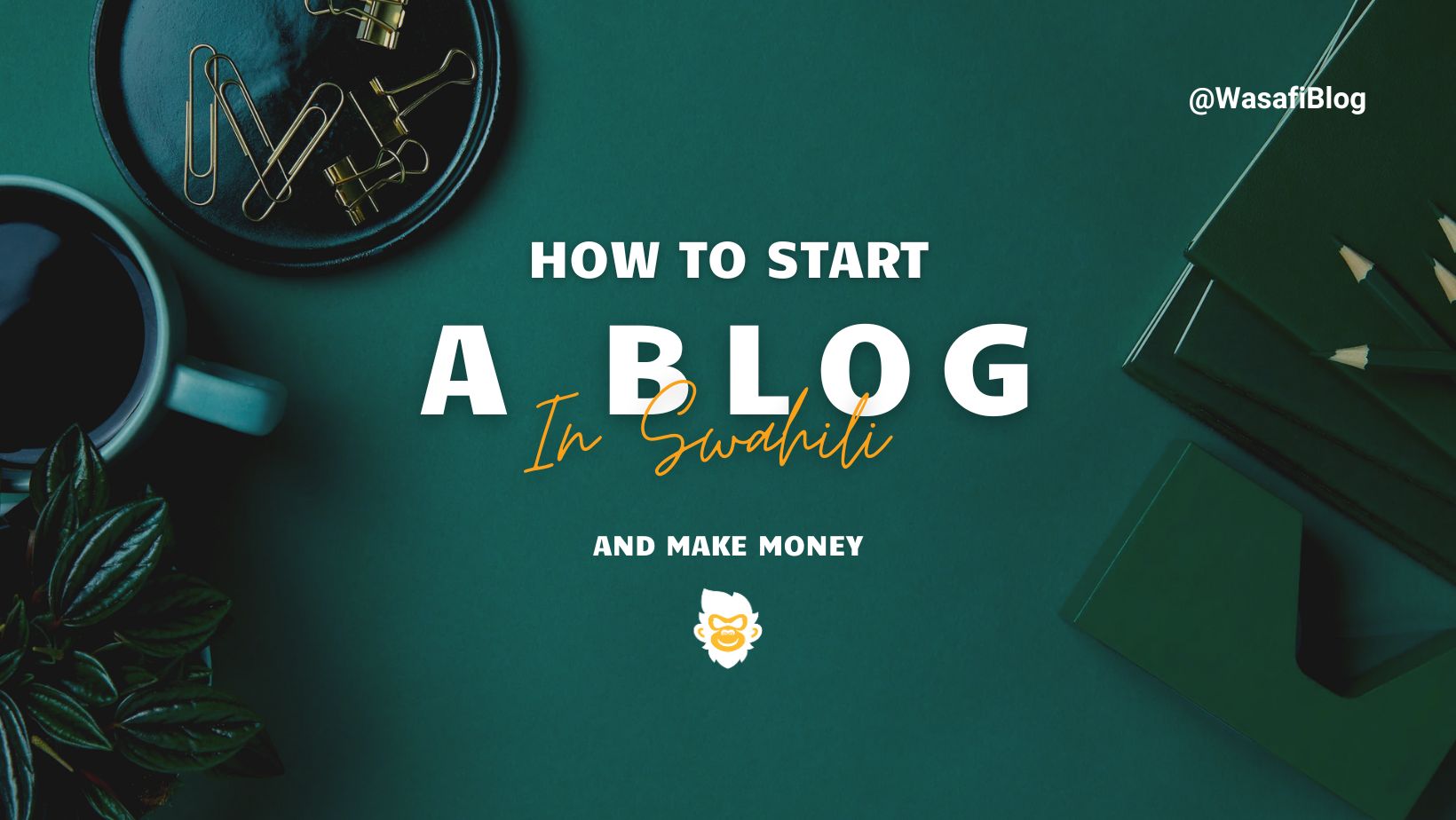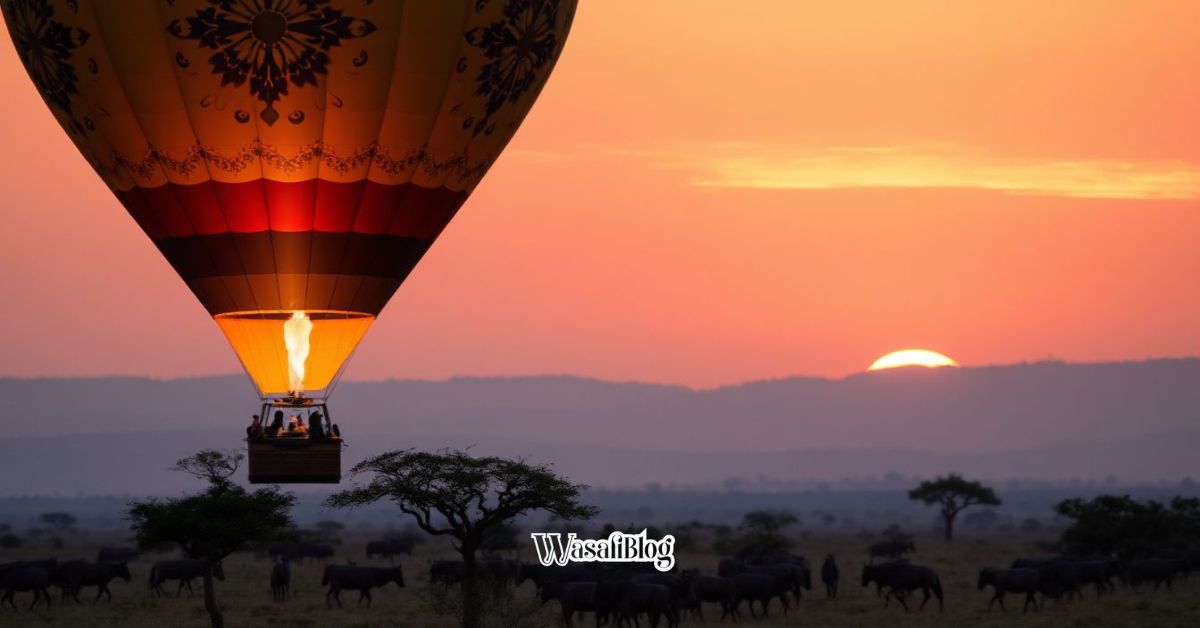There’s something magical about bringing a piece of a faraway land back home with you. It’s not just an object; it’s a tangible memory, a story whispered through its craftsmanship, and a vibrant echo of the adventures you’ve had. My numerous journeys through Tanzania have left an indelible mark on my soul, and with each visit, I’ve discovered new treasures that capture the essence of this incredible East African nation. If you’re planning a trip, or just dreaming of one, and wondering what Tanzanian Souvenirs you simply must bring home, then you’ve come to the right place.
From the bustling markets of Dar es Salaam to the artisan stalls in Arusha and the spice-scented shops of Zanzibar, Tanzania offers a dazzling array of unique items. Beyond the stunning landscapes and unforgettable wildlife encounters, the country is a vibrant tapestry of cultures, each contributing its artistry and heritage to the souvenir landscape. I’ve spent countless hours sifting through stalls, chatting with local artisans, and negotiating prices (all part of the fun!), to bring you this curated list of the top best Souvenirs from Tanzania. These aren’t just trinkets; they are authentic pieces of Tanzanian life that will keep your memories vivid for years to come.
Join me as I delve into the stories behind these beautiful creations, offer insights into what they might cost, and share my personal tips for making your souvenir shopping experience as enriching as your safari itself. My goal is to help you find those perfect Souvenirs in Tanzania that truly speak to your heart and keep the spirit of your adventure alive long after you’ve unpacked your bags. Let’s explore!
The Top 9 Most Popular Tanzania Souvenir Gifts to Cherish
Each of these items carries a piece of Tanzania’s soul, whether it’s through its origin, its craftsmanship, or its cultural significance.
1. Tanzanite Gemstones & Jewelry: A Piece of the Tanzanian Sky
Imagine holding a piece of the Tanzanian sky in your hand, a stone that shifts from deep sapphire blue to vibrant violet, sometimes even with hints of burgundy. That’s Tanzanite for you, and it’s undeniably at the top of our list of Tanzania Souvenirs. Why? Because it’s found nowhere else on Earth but in the Mererani Hills near Mount Kilimanjaro! This geological rarity makes Tanzanite one of the most unique and sought-after Souvenirs from Tanzania.
When you buy Tanzanite, you’re not just purchasing a beautiful gem; you’re investing in a piece of geological history and a truly exclusive treasure. It’s relatively young in the gemstone world, having only been discovered in 1967, and its finite supply only adds to its allure. The shift in color depending on the light is mesmerizing, making it a conversation starter and a constant reminder of your incredible journey.
What to look for: You’ll find it in various forms, from loose, faceted stones perfect for custom settings, to breathtaking necklaces, earrings, rings, and bracelets. Always ask for a certification of authenticity, especially for higher value pieces, as this verifies its origin and quality. Reputable jewelers in major cities like Arusha, Dar es Salaam, and Zanzibar will be your best bet, often offering a range of cuts, clarities, and carats to fit different budgets. This gemstone isn’t just a souvenir; it’s an heirloom, making it one of the top best souvenirs to bring home.
2. Maasai Beaded Crafts: Wearable Art with a Story
The Maasai people are one of East Africa’s most iconic tribes, renowned for their distinctive culture, semi-nomadic lifestyle, and vibrant beaded jewelry. When you think of Tanzanian Souvenirs, Maasai crafts immediately come to mind. These aren’t just accessories; they are intricate works of art, each bead meticulously placed to create stunning patterns and meaningful symbols.
From elaborate necklaces (known as enkarewa) worn by women, to colourful bracelets, anklets, and even contemporary items like beaded sandals and keychains, Maasai crafts are a celebration of colour and tradition. The colours themselves hold significance: red for bravery and blood, white for peace, blue for water, green for land and health, yellow for hospitality, and orange for warmth. When you wear a piece of Maasai jewelry, you’re carrying a piece of their rich heritage and storytelling.
What to look for: You can find Maasai crafts almost everywhere, from roadside stalls in national parks to dedicated craft markets in towns and cities. Buying directly from Maasai women’s cooperatives or villages (if you have the opportunity) ensures that your money directly supports the artisans and their communities. This direct purchase also offers a more authentic experience, allowing you to appreciate the skill and dedication that goes into each piece. These beautiful, handcrafted items are among the most culturally significant Souvenirs in Tanzania.
3. Makonde Wood Carvings: Sculpted Heritage
The Makonde people, prominent in southern Tanzania and northern Mozambique, are celebrated for their extraordinary wood carving skills. Their art is distinct, often characterized by abstract forms, intricate details, and a deep connection to ancestral spirits and everyday life. Makonde carvings are truly masterpieces, making them exceptional Tanzanian Souvenirs for art lovers.
The most famous Makonde carving style is “Ujamaa,” which translates to “familyhood” or “brotherhood.” These intricate sculptures depict multiple intertwined figures emerging from a single piece of wood, symbolizing community, unity, and the lineage of a family tree. Other popular carvings include realistic or stylized human figures, animals (especially safari animals like elephants, giraffes, and rhinos), and functional items like stools or bowls. They often use dense, dark hardwoods like ebony, which gives them a rich, polished look.
What to look for: You’ll find these carvings in varying sizes and complexities. Large, elaborate Ujamaa trees can be quite an investment, while smaller animal carvings are more affordable. Always look for fine details, smooth finishes, and the unique Makonde style. Art galleries, dedicated craft markets (like Mwenge Carvers Market in Dar es Salaam), and even some safari lodges will have a selection. When purchasing, inquire about the wood type and the artist, if possible. These carvings are definitive top best souvenirs for those who appreciate fine art and craftsmanship.
4. Tinga Tinga Paintings: A Burst of Colour and Joy
If you’re looking for art that vibrates with energy and colour, Tinga Tinga paintings are the perfect Souvenirs in Tanzania. This distinctive style of painting originated in Tanzania in the late 1960s, named after its founder, Edward Saidi Tingatinga. Characterized by vibrant colours, flat backgrounds, and stylized depictions of wildlife, nature, and sometimes daily life, Tinga Tinga art is instantly recognizable and incredibly cheerful.
These paintings typically feature simplified forms of animals, often with exaggerated features, set against a single, bright background. They are usually painted on canvas or Masonite boards using bicycle enamel paints, which contribute to their glossy finish and intense hues. Each piece tells a simple, joyful story, celebrating the rich biodiversity of Tanzania and the everyday wonders of life. They bring a distinct African flair to any space, making them highly popular Tanzanian Souvenirs.
What to look for: You’ll find Tinga Tinga paintings in various sizes, from small squares perfect for gifts to large canvases that can dominate a wall. The Tinga Tinga Arts Co-operative Society in Dar es Salaam is the official home of this art form, where you can see artists at work and purchase genuine pieces. You’ll also find them in other craft markets and tourist shops across the country. They are lightweight and easy to roll up for travel, making them practical the best souvenirs to bring home.
5. Khanga & Kitenge Fabrics: Wear Your Tanzanian Story
For a truly practical yet vibrant Tanzanian Souvenir, look no further than Khanga and Kitenge fabrics. These colourful pieces of cloth are integral to East African culture and offer a beautiful way to take the spirit of Tanzania home with you.
Khanga are lighter, single pieces of cotton fabric (usually 1.5m x 1.1m) with distinct borders and a central design, often featuring a Swahili proverb or message printed along the bottom (“jina”). They are incredibly versatile – worn by women as skirts, head wraps, baby slings, or simply as comfortable loungewear at home. The proverbs often convey witty or wise messages, adding another layer of cultural authenticity.
Kitenge (sometimes called African print fabric) are heavier, wax-printed cotton fabrics, usually sold in larger bolts (6-yard lengths). They feature bolder, more complex patterns and are used for making tailored clothing like dresses, shirts, and skirts, as well as home décor items. Both fabrics are a riot of colours and patterns, reflecting the energy and creativity of Tanzanian fashion.
What to look for: You can buy Khangas and Kitenges in local markets (like Kariakoo Market in Dar es Salaam), fabric shops, and even from street vendors. Look for patterns and colours that speak to you. You can purchase them as raw fabric to have tailored into clothing later, or find pre-made items like scarves, bags, or placemats. They are affordable, lightweight, and incredibly versatile, making them fantastic Souvenirs from Tanzania that you can actually use!
6. Tanzanian Coffee: The Aroma of the Highlands
If you’re a coffee connoisseur, or simply enjoy a good, rich brew, then Tanzanian coffee should definitely be on your list of Souvenirs. The country is renowned for its high-quality Arabica coffee beans, primarily grown on the slopes of Mount Kilimanjaro and in the southern highlands. The fertile volcanic soil and high altitudes contribute to a distinct flavour profile – typically bright, wine-like, and with a medium body.
Bringing home a bag of freshly roasted Tanzanian coffee allows you to relive the mornings on safari, or the peaceful moments overlooking a coffee plantation, with every sip. It’s a consumable souvenir, but one that offers a sensory journey back to your adventure. It also makes for an excellent gift, universally appreciated by friends and family. This isn’t just any coffee; it’s a taste of Tanzania’s rich agricultural heritage.
What to look for: You’ll find Tanzanian coffee in specialty coffee shops, grocery stores, and even some airport duty-free shops. For the best quality, look for single-origin beans, preferably from specific regions like Kilimanjaro, Arusha, or Mbeya. Many local roasters offer freshly ground or whole bean options. Consider buying from fair-trade cooperatives to ensure the farmers receive a just price for their hard work. Aromatic and delicious, it’s one of the top best souvenirs for foodies.
7. Zanzibar Spices & Spice Products: The Scent of the Spice Island
A visit to Tanzania often includes a trip to the enchanting island of Zanzibar, famously known as the “Spice Island.” Historically a major hub in the spice trade, Zanzibar’s rich soil and tropical climate are perfect for cultivating an incredible array of spices. Bringing home spices directly from their source is an experience in itself and one of the most evocative Souvenirs from Tanzania.
Imagine the heady scent of cloves, black pepper, nutmeg, cinnamon, vanilla, and cardamom filling your kitchen. These aren’t just dried herbs; they are potent, fresh, and often organically grown. Beyond whole or ground spices, you can also find a variety of spice-infused products like handmade soaps, essential oils, and even culinary extracts. These make for unique and aromatic gifts that capture the very essence of Zanzibar’s history and natural bounty.
What to look for: The best place to buy spices is directly from a spice farm tour on Zanzibar. Here, you can see the spices growing, learn about their uses, and purchase them fresh. Alternatively, local markets like Darajani Market in Stone Town offer a vast selection. Always check for freshness and aroma. Pack them well to retain their fragrance during travel. These fragrant treasures are some of the most memorable and flavourful Tanzanian Souvenirs you can find.
8. Hand-woven Baskets & Pottery: Functional Art from Local Artisans
Across Tanzania, you’ll find incredible craftsmanship in everyday items, particularly in hand-woven baskets and traditional pottery. These items are not only beautiful but often highly functional, making them excellent Tanzanian Souvenirs that you can use and admire daily.
Baskets are typically woven from natural materials like grass, reeds, sisal, or palm leaves. They come in an astonishing array of shapes, sizes, and patterns – from flat serving trays to large storage hampers, picnic baskets, and decorative wall hangings. Each region might have its own distinct weaving style or colour palette, reflecting local traditions and available resources. They are lightweight and often durable, though some delicate ones may require careful packing.
Pottery ranges from simple, earthy clay pots used for cooking or water storage, to more decorative, painted pieces. You might find intricate designs inspired by local flora, fauna, or abstract patterns. Buying these pieces supports local artisans who have often passed down their skills through generations.
What to look for: Seek out baskets and pottery at local village markets, artisan cooperatives, and craft fairs. Look for tight weaves in baskets and consistent finishes in pottery, indicating quality craftsmanship. These items embody the simple elegance and resourcefulness of Tanzanian daily life, making them authentic Souvenirs that add a touch of African warmth to your home.
9. Baobab Products: The Superfood of the Savannah
For something distinctly African and incredibly healthy, consider bringing home products made from the mighty baobab tree. Often called the “Tree of Life,” the baobab is an iconic symbol of the African savannah, and its fruit is a true superfood. This is a unique and increasingly popular choice among Tanzanian Souvenirs.
The baobab fruit pulp is naturally dehydrated inside its shell, yielding a powder rich in Vitamin C, fiber, antioxidants, and essential minerals. It has a tangy, citrusy flavour and can be added to smoothies, yogurts, juices, or baked goods. Beyond the powder, you might find baobab oil (cold-pressed from the seeds), which is prized for its moisturizing and restorative properties in skincare. Baobab soap is also a delightful option.
What to look for: Baobab products are typically found in health food stores, specialty shops, and some general markets, particularly in areas where baobab trees are prevalent. Ensure the products are pure and from reputable sources. They offer a taste and a health benefit unique to the African continent, making them modern and thoughtful top best souvenirs for the health-conscious traveler.
What are the Most Popular Souvenirs from Tanzania?
When you’re exploring the markets and shops of Tanzania, you’ll quickly notice that certain items consistently catch your eye and appear on every tourist’s wish list. The items we’ve just explored are, without a doubt, the champions among Souvenirs from Tanzania.
The absolute most popular categories can be broken down into:
- Jewelry and Gemstones: Tanzanite reigns supreme due to its exclusivity, followed closely by the vibrant and culturally rich Maasai beaded jewelry. These are highly sought-after for their beauty and their direct connection to Tanzanian identity.
- Art and Crafts: Makonde wood carvings, with their intricate designs and deep cultural roots, and the cheerful, distinctive Tinga Tinga paintings, are perennial favourites. They offer a visual narrative of Tanzanian artistry and wildlife.
- Textiles: Khanga and Kitenge fabrics are incredibly popular for their utility, vibrant patterns, and the fact that they are deeply woven into the fabric of daily Tanzanian life. They allow you to literally wrap yourself in Tanzanian culture.
- Consumables: Tanzanian coffee and Zanzibar spices are immensely popular because they allow you to share a taste and an aroma of your journey. They evoke memories long after the trip is over and make fantastic gifts for food enthusiasts.
These combined categories represent the very best of what Tanzania has to offer in terms of keepsakes. They are not only beautiful and well-crafted but also deeply authentic, reflecting the rich cultural tapestry and natural wonders of the country. When people ask what to bring back from East Africa, these are the top best souvenirs that consistently come up in conversation. They offer a blend of luxury, art, culture, and practicality, ensuring there’s something for every taste and budget among the vast array of Tanzania Souvenirs.
How Much Do Souvenirs Cost in Tanzania? Navigating Prices and Bargaining
One of the most common questions when shopping for souvenirs in Tanzania is, “How much should I expect to pay?” The answer, as with many things in travel, is “it depends!” Prices for souvenirs can vary wildly depending on the item, its size, the quality of craftsmanship, where you buy it, and, crucially, your bargaining skills.
Here’s a breakdown to help you navigate the pricing landscape:
1. The Art of Bargaining (and Why It’s Expected): In most local markets and from street vendors, bargaining is not just accepted; it’s an expected part of the transaction. The initial price offered to tourists is often inflated, sometimes by a significant margin. Don’t be shy, but always be respectful and friendly.
- Rule of Thumb: A good starting point is to offer 30-50% less than the initial asking price and then negotiate to meet somewhere in the middle.
- Tactics: You can walk away (sometimes they’ll call you back with a lower price), buy multiple items to get a better deal, or simply state your target price firmly but politely.
- When NOT to Bargain: In established shops with fixed price tags, high-end galleries (especially for Tanzanite), or grocery stores, bargaining is generally not appropriate.
2. Price Ranges for Specific Souvenirs (Estimates in USD):
- Tanzanite Gemstones & Jewelry: This is your big-ticket item.
- Small, loose stones (0.25-0.5 carat): $50 – $200+
- Small pendants, earrings: $150 – $500+
- Larger, high-quality stones or intricate jewelry: $500 – several thousand dollars.
- Tip: Always buy from reputable jewelers who provide certification. Prices reflect the “4 Cs”: Carat (weight), Color, Clarity, and Cut.
- Maasai Beaded Crafts: Generally very affordable.
- Small bracelets/keychains: $5 – $15
- Medium necklaces/sandals: $15 – $40
- Elaborate, multi-strand necklaces/collars: $40 – $100+
- Tip: Bulk buying can often get you a better deal.
- Makonde Wood Carvings: Prices vary greatly with size, detail, and wood type.
- Small animal carvings (5-10 inches): $10 – $40
- Medium human figures/masks (1-2 feet): $50 – $150
- Large, intricate “Ujamaa” tree of life (3+ feet): $200 – $1000+
- Tip: Ebony is more expensive than other local woods. Inspect for cracks or imperfections.
- Tinga Tinga Paintings: Excellent value for original art.
- Small (e.g., A4 size): $10 – $30
- Medium (e.g., A3/A2 size): $30 – $70
- Large (e.g., A1 size or bigger): $80 – $250+ (depending on artist reputation)
- Tip: They are easy to roll up and transport.
- Khanga & Kitenge Fabrics: Very budget-friendly.
- Single Khanga (one piece): $5 – $15
- 6-yard Kitenge block: $15 – $40 (depending on quality and print complexity)
- Tip: Fabric prices are often listed per yard/metre in specific fabric shops, but full pieces are sold in markets.
- Tanzanian Coffee: Comparable to specialty coffee prices elsewhere.
- 250g bag: $8 – $15
- 500g bag: $15 – $25
- Tip: Buying directly from a cooperative or local roaster can be slightly cheaper and fresher.
- Zanzibar Spices & Spice Products: Excellent value for fresh quality.
- Small bag (e.g., 100g) of a single spice: $3 – $7
- Mixed spice gift sets: $10 – $30
- Spice-infused soaps/oils: $5 – $15 per item
- Tip: Price per kilo generally reduces in larger quantities.
- Hand-woven Baskets & Pottery: Varies with size and intricacy.
- Small decorative basket/bowl: $10 – $30
- Medium-sized functional basket: $30 – $70
- Large storage hampers: $80 – $200+
- Tip: Pottery can be fragile; ensure it’s well-wrapped if buying.
- Baobab Products:
- Baobab fruit powder (100-200g): $10 – $25
- Baobab oil (small bottle): $15 – $40
- Baobab soap: $5 – $10
- Tip: Check expiry dates, especially for powders.
3. Where You Buy Matters:
- Local Markets (e.g., Kariakoo in Dar, Darajani in Zanzibar): Best prices, most authentic experience, but requires strong bargaining skills. You’ll find a huge variety of Tanzanian Souvenirs here.
- Dedicated Craft Markets (e.g., Mwenge Carvers in Dar, Cultural Heritage Centre in Arusha): Good selection, often better quality, prices are negotiable but may start higher. Many of the best souvenirs can be found here.
- Tourist Shops & Safari Lodge Gift Shops: Most convenient, prices are generally fixed and higher, but quality is usually assured. Less bargaining room.
- Artisan Cooperatives/Direct from Artists: Often fair prices as you’re supporting the maker directly. Quality is usually very high.
- Airport Duty-Free: Most expensive option, limited selection, best for last-minute purchases.
4. Payment Methods: While credit cards are accepted in larger shops, hotels, and high-end galleries, cash (Tanzanian Shillings or USD) is king in local markets. Having small denominations of TZS is very helpful for smaller purchases and better bargaining.
By understanding these dynamics, you’ll be well-equipped to find fantastic Souvenirs in Tanzania at prices that feel fair to both you and the talented artisans. Happy shopping!
Practical Tips for Your Tanzania Souvenir Shopping Adventure
Now that you know what to look for and what to expect regarding prices, here are some essential tips to make your souvenir shopping experience in Tanzania even more rewarding:
- Start Early, Buy Smart: Don’t wait until your last day to buy all your Tanzanian Souvenirs. If you see something you love, consider buying it then. However, if you have time, browse a few places to get a sense of prices and quality before making a significant purchase.
- Support Local Artisans: Wherever possible, try to buy directly from the people who made the item or from cooperatives that genuinely support local communities. This ensures your money empowers the artists and helps sustain their traditional crafts, making your Souvenirs from Tanzania even more meaningful. Look for opportunities to visit artisan workshops or villages, often offered as cultural excursions.
- Inspect Quality: Before you seal the deal, thoroughly inspect your chosen item. For wood carvings, check for cracks or imperfections. For fabrics, look at the print quality and colour fastness. For jewelry, examine the settings and clasps. A quick check can prevent disappointment later.
- Ask Questions (Respectfully): Engage with the vendors. Ask them about the item’s origin, the materials used, or the story behind it. This not only enriches your experience but also shows respect for their craft and culture. It can also help you determine the authenticity of the item.
- Be Prepared for Packing: Consider how you’re going to get your top best souvenirs home.
- Fragile items (pottery, delicate carvings): Ask vendors if they can wrap them securely. You might also want to bring some bubble wrap or soft clothing in your luggage for extra protection.
- Paintings (Tinga Tinga): These can usually be carefully rolled up and placed in a cardboard tube or even a hard-shell suitcase.
- Tanzanite: High-value gems should be carried in your hand luggage with their certification.
- Liquids (baobab oil, coffee extracts): Ensure they are sealed properly to prevent leaks and follow airline liquid restrictions if carrying them in hand luggage.
- Understand Customs Regulations: Be aware of any restrictions on bringing certain items into your home country, especially for things like plant products (spices, baobab powder) or items made from protected wildlife (though this is rare with legitimate craft sellers, always be cautious). Carrying certification for Tanzanite is crucial for smooth customs clearance.
- Carry Small Denominations: As mentioned in the pricing section, having small notes of Tanzanian Shillings is incredibly useful for small purchases and bargaining in local markets.
- Stay Aware of Your Surroundings: Like any busy market, be mindful of your belongings and keep an eye on your bags while you’re focused on shopping. Common sense and caution go a long way.
Conclusion: Carry a Piece of Tanzania in Your Heart (and Handbag!)
Your safari in Tanzania will be filled with moments that touch your soul – the roar of a lion, the warmth of the sun on the savannah, the friendly smiles of the people. And when it’s time to return home, you’ll want a tangible reminder of those cherished experiences.
Whether you choose a sparkling Tanzanite, an intricate Makonde carving, or a fragrant bag of Zanzibar spices, you’re not just buying a thing; you’re taking home a story, a memory, a piece of Africa itself. Each of these Souvenirs from Tanzania is a testament to the country’s incredible artistry, rich culture, and natural beauty. They are more than just trinkets; they are keepsakes that will evoke the magic of your adventure for years to come.
So go ahead, explore with an open heart and keen eye. Engage with the local artisans, find those perfect Tanzanian Souvenirs, and let your chosen treasures keep the spirit of this extraordinary nation alive in your home.
Which of these top best souvenirs from Tanzania are you most excited to bring home? Or perhaps you’ve already visited and have a favourite Souvenir of your own? Share your thoughts and experiences in the comments below – we’d love to hear from you!





